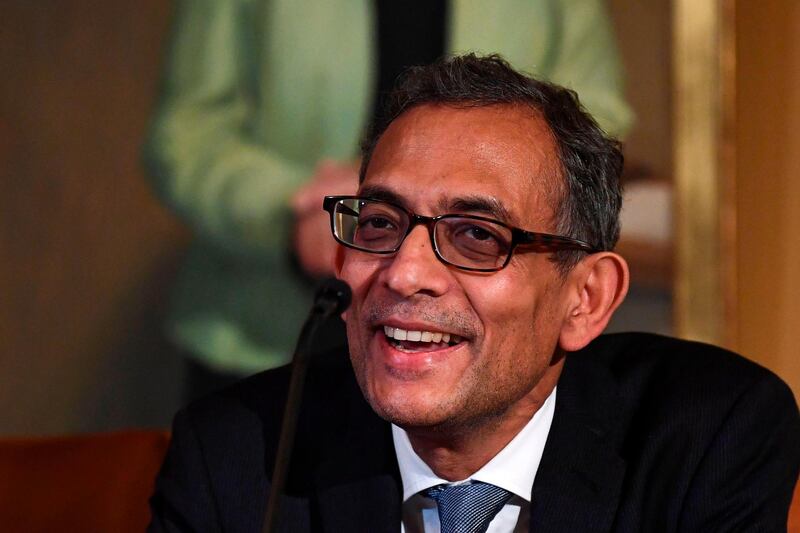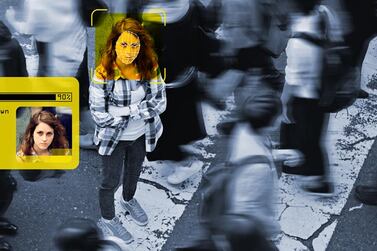Abhijit Banerjee, recently awarded the Nobel Prize in Economic Sciences (along with co-researchers Michael Kremer and Esther Duflo), is the economics professor you always wished you'd had. Whether in person or on the page, the economist, 58, is able to relate complicated theories on real-world problems in ways that excite the imagination and campaign for a better world.
He's also refreshingly free of grandiosity – he often compares the work of an economist to the profession of a plumber. And it turns out, his decision-making in money matters is as messy as yours or mine. "I am a disastrous money manager – penny wise and pound foolish," he says. "I find complicated ways to save small amounts of money and then splurge, especially on food and travel. Esther and I have much more money sitting in the bank uninvested than any economist would admit to."
Banerjee and Duflo – long-time collaborators and, since 2015, husband and wife – have been familiar names to readers outside the cloisters of academia for about a decade now. Poor Economics, their 2011 book about how economics as a discipline had neglected to study the particular stresses and strategies of the lives of the very poor, was a surprise hit. But in the wake of the 2019 Nobel Prize win, they have been catapulted into an entirely new realm.
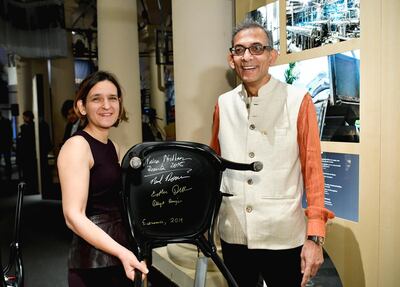
Indians in particular have been avid to claim ownership of Banerjee – only the second Indian to win the Nobel Prize for Economics after Amartya Sen in 1998. This season, his face, grave and avuncular, seems to be everywhere you look. At the airport bookshop in New Delhi, where I fly out from to meet him in Kolkata, the city in which he grew up, Poor Economics is back up at number two in the non-fiction chart. And Good Economics for Bad Times, the new book by Banerjee and Duflo, is number one.
All the attention is just reward for decades of enterprising work extending the frontiers of economics with thoughtfully designed field experiments. Banerjee, Duflo and Kremer are credited with revitalising economic inquiry in the 21st century with their deployment of a method borrowed from the sciences called the randomised controlled trial (RCT).
These experiments seek to evaluate the outcomes of particular policies, or aspects of policy design – say, the impact of a small class size on student performance – by comparing the outcomes in the real world of a group that receives them (the experimental group) against one that doesn’t (the control group). Individuals in both groups are randomly selected, thereby ensuring there is no bias.
Since 2003, Banerjee and Duflo have launched dozens of RCT experiments under the aegis of the Jamal Abdul Lateef Poverty Action Lab (J-PAL), a centre they founded with the mission "to reduce poverty by ensuring that policy is informed by scientific evidence". Applied to a wide variety of themes and situations – spending and saving habits, healthcare, even the way people assign meaning and value to their possessions – the RCT method allows complex policies to be broken down into meaningful little chains of causes and effect, showing where the bottlenecks in a delivery mechanism might lie.
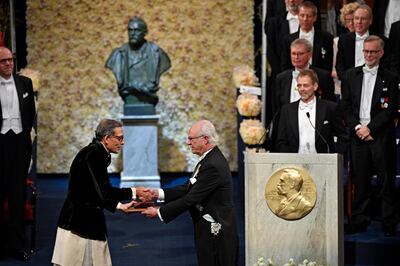
And in deconstructing the way human beings frame their lives and make their choices, these experiments generate valuable insights for evidence-based policy making and often – this is what makes the books so fascinating – reveal surprising, novelistic truths, full of vivid details, about human behaviour.
For instance, no reader is likely to forget the section in Poor Economics that explores why the poor often make suboptimal decisions about things such as healthcare. That's because poverty places an enormous responsibility on a person to make the right decision – even about where to drink the next safe glass of water – every time, an issue those who are well-off don't face, and can only imagine. In the poignant words of Banerjee and Duflo, "the poor bear responsibility for too much of their lives".
The RCT method as practised by economists around the world is at the heart of Good Economics for Bad Times, a wide-ranging economics primer for our turbulent times, offering trenchant, evidence-based perspectives on everything from immigration and inequality to climate change and social welfare.
In the book’s startling opening chapter, Banerjee and Duflo address the growing anxiety about immigration, especially in the West, by asking a counter-intuitive question: not why there are so many immigrants in the world, but why there are so few.
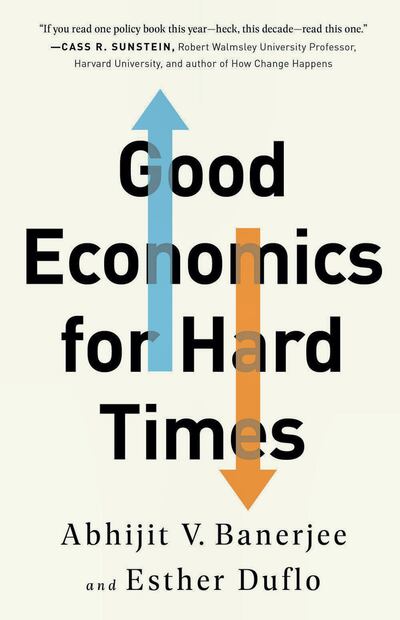
It's often assumed that immigrants are waiting for the first chance to leave lives of poverty and precarity at home for the developed world. But research into immigration around the world shows that the desire to leave one's home is motivated much more by threats to life, such as civil war or religious strife, than by poverty.
Even within countries, all but the most ambitious and enterprising of the poor usually seek to hold on to the status quo rather than risk their savings, small creature comforts, and social networks to pursue work in the anonymity and congestion – and extreme competition – of a big city. The economics of labour are not subject to the same laws of demand and supply as that of goods; workers are much more “sticky”, tied to particular places by culture, memory and family.
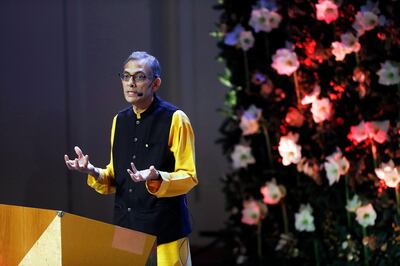
This insight into immigration can then be usefully applied to another emotive issue – unemployment – to explain why workers (especially older people) who have been laid off because of structural changes in the economy are reluctant to just pack up and seek work elsewhere. Free trade, Banerjee and Duflo argue, may often work to the advantage of consumers, who have access to cheaper goods, but its disruptions are borne overwhelmingly by workers in certain highly localised parts of the world. They require help – ideally, funded by the taxpayer, who stands to gain from reduced prices – to retrain themselves without prolonged exposure to economic insecurity. "To the extent that we are all benefiting from trade," they write, "we should collectively pay for the cost."
Countries that do not accept this concept – such as the US, with its cultural emphasis on individualism – put those left behind at further risk of alienation and dehumanisation, for "job loss is clearly much more than income loss". And societies in which a large number of people who are angry and resentful tend to be the kinds of places where people vote in populists – which in turn makes governments more inefficient. It's a powerful, rounded argument.
I'm curious about how Banerjee and Duflo divide the work of co-writing a book. "We first spend some time discussing the general slant of a chapter – what are the main points we want to make and why, what are the main pieces of relevant evidence," he says. "Then one of us writes a draft, seeking clarifications from the other if needed, not paying too much attention to the exposition. Esther does this more often than me because she is quicker and less obsessed with the writing.
"Then the other reads it and does a big edit, taking out stuff, adding in key missing pieces and asides, and reorganising. Finally I do the wordsmithing, going line by line and making sure that we have a specific tone." Even their work schedules are complementary. "Esther works in the morning. I work at night," he says.
Banerjee and Duflo have made economics as a profession humbler, closer to the ground, and more focused on improving basic human well-being and dignity. Theirs are the voices we need in our hard times.
